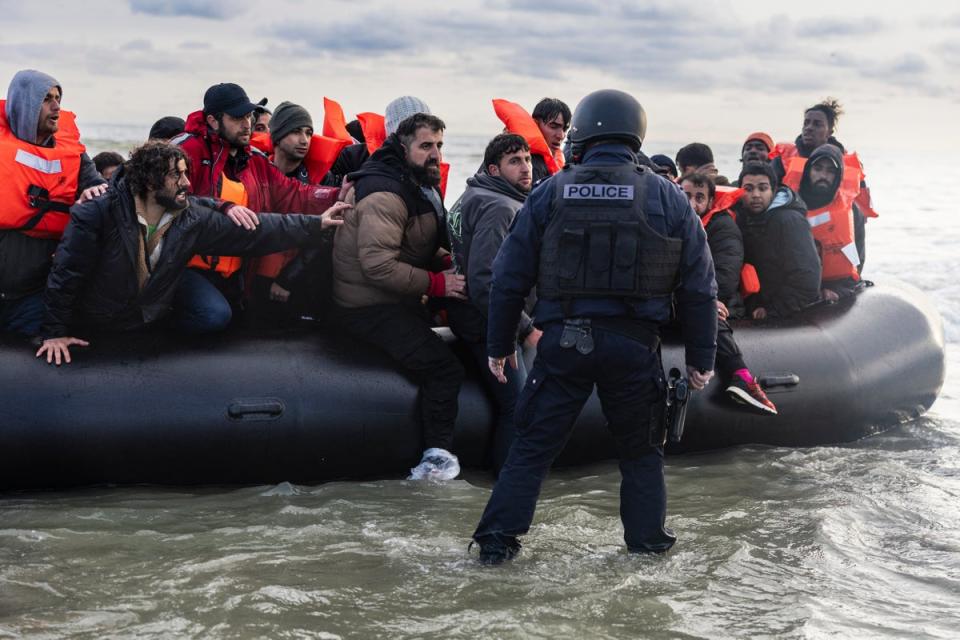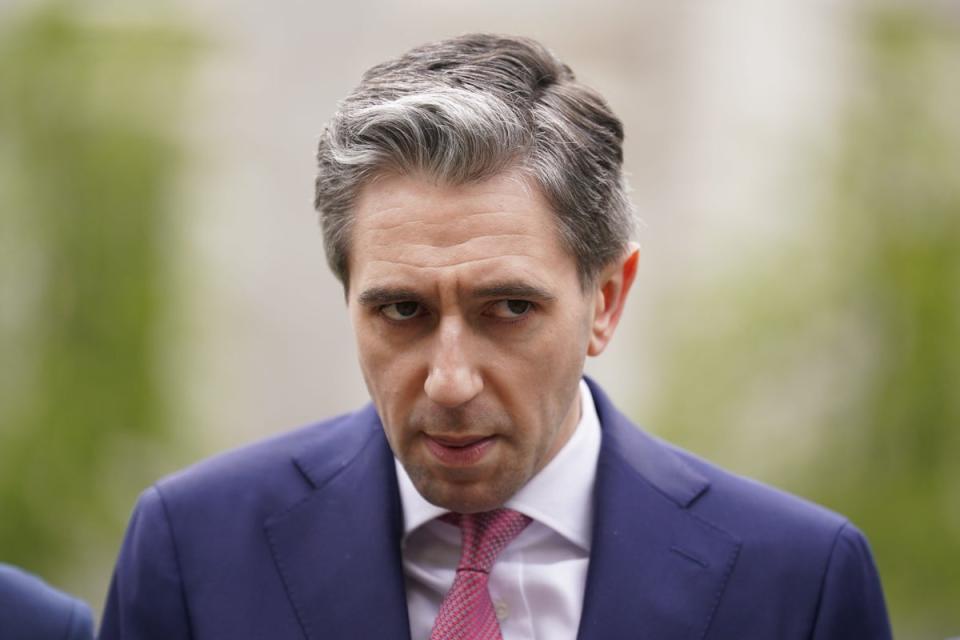Ireland tells Sunak ‘stop sending us your migrants’ amid Rwanda row
Ireland’s government has told Rishi Sunak it will send asylum seekers back to the UK in a growing diplomatic row over the Tory Rwanda law.
UK and Irish ministers are due to meet in London after Justice Minister Helen McEntee claimed the number of asylum seekers crossing from Northern Ireland is now higher than 80% due to a shift in migration patterns in recent months.
Mr Sunak has insisted claims that the Rwanda plan is responsible for an influx of migrants “shows the policy is working”, but Irish prime minister Simon Harris has cried foul.

On Sunday, Mr Harris said Ireland would not “provide a loophole for anybody else’s migration challenges” and asked his justice minister to bring forward emergency legislation to allow asylum seekers to be sent back to the UK.
But the move could spark a diplomatic row as a government source has now said any attempts to return the asylum seekers to Britain would amount to a grave double standard given that the UK is not allowed to send migrants who cross the English Channel back to France.
“We won’t accept any asylum returns from the European Union via Ireland until the EU accepts that we can send them back to France,” the source said. “We are fully focused on operationalising our Rwanda scheme and will continue working with the French to stop the boats from crossing the Channel.”

The taoiseach said earlier this week that Mr Sunak’s plan to deport some asylum seekers to Rwanda has caused an uptick in the number of asylum seekers crossing from Northern Ireland into the Republic.
In response, a spokesperson for Mr Harris said the Irish PM asked his justice minister, Helen McEntee, “to bring proposals to cabinet next week to amend existing law regarding the designation of safe ‘third countries’ and allowing the return of inadmissible international protection applicants to the UK”.
Ms McEntee said she would be meeting with British home secretary James Cleverly on Monday to raise these issues.
The Conservatives’ plan to send asylum seekers to the east African nation received a fresh boost on Thursday after the Safety of Rwanda (Asylum and Immigration) Act was signed into law, which ensures the practice of sending migrants to Rwanda is legally sound.
Mr Sunak later claimed the first flights to Rwanda would take off within 10 to 12 weeks, more than two years after the bill was originally proposed by former prime minister Boris Johnson in April 2022.
Deputy Irish premier Micheal Martin subsequently claimed there had been an influx of asylum seekers crossing into Ireland across the land border with Northern Ireland because people were “fearful” of being deported to Rwanda.
He said asylum seekers were seeking “to get sanctuary here and within the European Union as opposed to the potential of being deported to Rwanda”.
A Downing Street spokesperson disputed these claims, saying it was “too early to jump to specific conclusions about the act”, referring to the Safety of Rwanda Act.
But Mr Sunak later claimed the alleged influx of migrants into Ireland was evidence that the Rwanda plan was working as a deterrent to migrants.
“What it shows, I think, is that the deterrent is already having an impact because people are worried about coming here and that demonstrates exactly what I’m saying,” he told Sky News’ Sunday Morning with Trevor Phillips.
“If people come to our country illegally, but know that they won’t be able to stay, they’re much less likely to come, and that’s why the Rwanda scheme is so important.”


